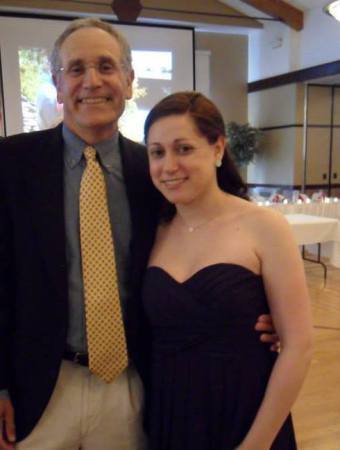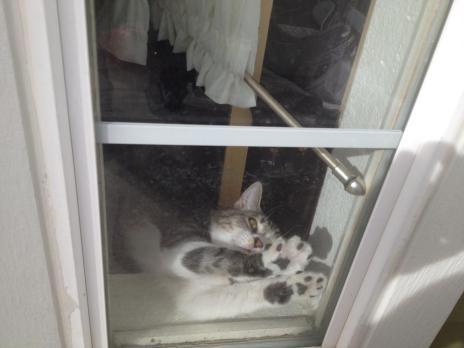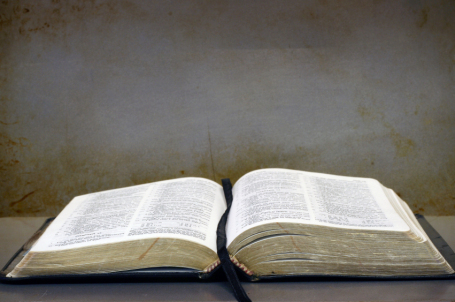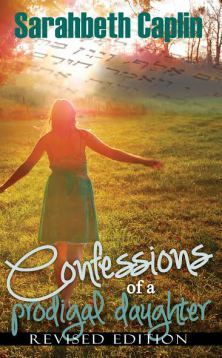Sarahbeth Caplin's Blog, page 38
January 31, 2016
Lessons about biblical truth from the Tooth Fairy
A story from my childhood came to mind the more I thought about biblical certainty. When I lost my first tooth, my parents told me how the Tooth Fairy would come into my room while I slept that night, and replace my lost tooth with money (or, in my family, a set of magic markers left at the side of my bed rather than under the pillow).
My little brother was concerned about how the Tooth Fairy would be able to get into my room, since we used an alarm system, and my bedside window had a screen in place. His solution was to make a hole in the screen with a plastic sword. Though he technically got the facts wrong – the Tooth Fairy is magic and doesn’t require human intervention – his sincere belief in the “truth” of his interpretation was so cute. My parents thought it was hilarious and weren’t too upset about having to replace the screen.
I think – I hope – that if there is a God, he will be merciful to the people like my brother who cut figurative holes in their screened windows for the Tooth Fairy. I would like to believe that the God I worship is a God of grace, who looks at the heart and its pursuit of truth, more so than a list of memorized verses and sermons. One of the most valuable lessons I’ve learned as of late is “This is what I believe, but I could be wrong.” The virtue of humility is repeatedly praised in the gospels over the rock-hard certainty of the Pharisees. Certainty and humility can never be friends. My being “right” with God depends more on the attitude of my heart, and the decisions I make with careful consideration of the resources available to me, more so than blind obedience.
But then again, I could be wrong.
Filed under: Religion Tagged: Christian culture, Christianity, evangelicals








January 29, 2016
An ode to my father’s Mazda
My “be surprised” theme for 2016 is already not going as expected (because I always, always end up damning myself to regret what I wish for). Worn-down brakes, an expired clutch, a gas leak, and a dead battery cost me roughly $2000 in car payments just this month, on top of the medical bills for my kitty who is apparently allergic to everything. Yes, this is all part of adulting, but I really should have known better than to put “I want to be surprised!” in writing.
All these vehicle malfunctions in one month made me consider whether it might be time to retire my ten-year-old Mazda and buy a new (used) car. At some point, it’s not worth paying to keep fixing a car when the payments almost add up to the monthly fees of a new one. I would like a car that has a built-in system just for iPods, so I can retire my ancient auxiliary cord that goes into the cigarette lighter and must be synced to a radio station with fickle frequency.
But…this was my father’s car. At some point it became the car my brother and I shared, and then the car I used to commute from school to my part-time job. When my brother graduated high school, he moved to Washington D.C., where owning a car is pointless, and I soon moved to Colorado. Dad leased a new car by that point, so I got to drive the Mazda across the country and call it mine. But the registration was in his name. Even after transferring the ownership and replacing the Ohio plates, it still feels like his. When I jack up the volume to Billy Joel’s “Only the Good Die Young” while speeding down the highway, it’s almost like he’s in the car with me.
I don’t have much attachment to “things.” There’s really nothing I own that can’t be replaced – yes, even the books. The only priceless objects I have are my journals from the last ten years, and the first love note I ever received from my husband: a message with burnt edges to look aged that he rolled tightly and put in a bottle. I’d be devastated if I lost that, but otherwise I have no deep attachment to my clutter.
Somehow this car is different. It’s probably because there’s a good chance this will be the last stickshift I’ll own, at least for a while. Josh (who can’t and doesn’t want to learn how to drive standard) bought a new car last summer when his thirteen-year-old Sebring died, so if I got a new car, it would be the cheapest (but still reliable) we can find; whatever is available. Dad and I didn’t have much in common, but he taught me how to drive using a stickshift. I took my driver’s test in a stickshift (in hindsight, I really don’t recommend this).
For years it was a love-hate, stop-and-stall relationship between the stickshift and me, but I eventually learned to love it. It is becoming a lost art, and I picture Dad turning over in his urn if he knew I might own an automatic one day…but hopefully not today.
His second birthday post-mortem is February 9th. He would have turned 60.

I did put two bumper stickers on the car: “Books are Sexy” and “Team Oxford Comma,” but other than that, I think he’d be proud to see how well I’ve taken care of his beloved clunker.
Filed under: Other stuff Tagged: cancer, grief








January 27, 2016
Living in a gefilte fish bowl
New excerpt from my upcoming memoir, Confessions of a Jew-ish Skeptic. Coming whenever I finally declare it finished and decide if I’m going to query agents or self publish.
 I’ve joked before that I’ve never felt more Jewish until I stepped into a church. People chuckle, but it’s true. Having that background, even if it’s no longer my religion, made me stand out. My new Christian friends in Campus Crusade for Christ engaged in a routine I call Put the Jew on the Spot. I’d be asked about “my testimony” almost immediately after “Nice to meet you” because, apparently, I already had a reputation that preceded me: “So you’re the Jewish girl!”
I’ve joked before that I’ve never felt more Jewish until I stepped into a church. People chuckle, but it’s true. Having that background, even if it’s no longer my religion, made me stand out. My new Christian friends in Campus Crusade for Christ engaged in a routine I call Put the Jew on the Spot. I’d be asked about “my testimony” almost immediately after “Nice to meet you” because, apparently, I already had a reputation that preceded me: “So you’re the Jewish girl!”
So you’re the Jewish girl. Just like in elementary school.
The most laughably uncomfortable moments of Put the Jew on the Spot happened, of course, at seminary. Being Jewish at a Christian seminary is like living in a gefilte fish bowl. Those moments were the ones you save a backlist of clever comebacks for, just in case, but of course you never think of them when the time is right to pull them out.
The Messianic Jewish major who seemed to believe I was the answer to his prayer for a Jew-ish wife bought me a ticket to a Passover seder, of which I was instantly skeptical. A seder held by a Christian seminary? I had no intentions of finding one at a local synagogue, so I agreed to go.
I should have known something was off when the dinner menu failed to include matzoh ball soup. I can now check a Passover seder with a dash of New Testament off of my bucket list: the matzah was broken into three pieces to symbolize the Trinity, serving as a literal representation of Jesus’ request at the Last Supper: “Take it and eat; this bread is my body.” Creative, I suppose. I could see and understand the parallels drawn, but couldn’t plug the growing condescension inside me that these silly gentiles couldn’t be bothered to pick up a history book and at least try to make it semi-accurate. A professor’s young daughter read the Four Questions, the only part of the evening that felt somewhat familiar.
When the student who invited me asked how it compared to my seders at home, my response was intercepted (perhaps a blessing in disguise) by the woman sitting next to me: “Oh, are you Jewish?” Her eyes lit up like blazing menorahs when I nodded in affirmation. She reached out, grabbed my hands and folded them into hers, then reverently bowed her head and whispered, “Thank you so much for being part of the lineage that brought me my Savior.” I have yet to receive a compliment stranger than that one. Sarcasm was the first and most effective method I could think of to ward off the awkwardness: “No problem, Ma’am. It was my pleasure.” I figured that would make her laugh, but she thought I was completely serious and wiped a tiny, glistening tear from her eye.
In another conversation at chapel, someone asked me if I was a direct descendant of Moses. I said yes, and was somehow believed. Perhaps most shocking was during a fall picnic on campus, when a student casually asked me how much of my extended family perished in the Holocaust.
For all my spiritual doubts, I am absolutely convinced of the truth of Proverbs 26:4-5: “Do not answer a fool according to his folly, or you yourself will be just like him. Answer a fool according to his folly, or he will be wise in his own eyes.”
Filed under: Religion Tagged: Christian culture, Christianity, evangelicals, Judaism, memoir, Seminary








January 25, 2016
A pretend “Humans of New York” interview
I’ve recently fallen in love with Humans of New York. If you aren’t following the Facebook page, I strongly advise fixing that right away. But as I don’t live in New York, it’s highly unlikely that Brandon Stanton will ever interview me, so here’s a pretend HONY post (in pretend New York; this picture is from my vacation in England last summer).

“I grew up Jewish in a conservative Christian town, and had my Bat Mitzvah in a church. By the time I entered high school, I started telling people I wanted to be a rabbi. But I secretly nursed an obsession with Jesus and saints, and ended up converting in college. I loved the idea of a personal god in the form of a human, but I didn’t know what to do with Christianity’s very anti-Jewish belief that anyone who does not believe in Jesus will go to hell.The friends I made in my college ministry focused heavily on human depravity, unworthiness, and biblical inerrancy. I think I was too scared to question any of it.
Everything got thrown off balance after a disastrous attempt at graduate school at a conservative seminary and when my father died on Rosh Hashanah, the Jewish new year. I still feel I have a strong culturally Jewish identity, but spiritually, I wonder if I might be agnostic. Because I’m starting to realize that few things scare people away from religion like making an idol of certainty.”
(Maybe I’d hand him a business card and cutely say, “Can you mention I wrote a book about this, too?”)
Filed under: Other stuff, Religion Tagged: Campus Crusade for Christ, Christian culture, Christianity, evangelicals, grief, hell, Humans of New York, Judaism, Seminary, Spiritual Abuse








January 24, 2016
Doing Christianity “Jewishly”: Asking all the hard questions
“Confessions of a Jew-ish Skeptic” is 90% finished, and it’s been a while since I shared an excerpt. The final version may not be finished until I complete my writing workshops this semester, so feel free to critique as you see fit.

For a while, I was into memoirs about Christians who suffered some kind of trauma that injured their faith, and the subsequent journey to get it back. I still love those books, but I’m also going back to reread my Jewish ones. I have an entire shelf stocked with Kushner, Frankel, Wiesel, and Talmudic commentaries that have, believe it or not, helped shape my Christianity more than any C.S. Lewis book.
One of my books discusses the idea of an ever-evolving Judaism: that as developments in culture and society change the way we think and live, so too does Judaism mold to fit these changes.
Talk about an idea that is antithetical to Evangelicalism in just about every way. You will never hear an evangelical preacher say that our faith changes with time; God is the same today as he was yesterday, and will be the same forever. But if the faith hasn’t changed, the culture certainly has: few churches in America prohibit female worshipers without head coverings, for example. Most Christians in America aren’t using Scripture to justify owning slaves anymore (I hope). I’ve often wondered what Jesus would think about the presence of Starbucks-style cafés and bookstores connected to houses of worship.
It’s with some uneasiness, then, that I agree with this idea: religion does evolve, whether we want to admit it or not. And if this is true, I believe it stands to reason that the definition of a Jew is constantly in flux as well. Before addressing my lineage, my DNA, and my Jewish childhood, I think the foundation of my unique Judaism is summarized by the wisdom that a Jew is recognized by her questions more than her answers.
I’ve always been that person who made other people uncomfortable in bible studies because I asked so many questions. The clichéd pat answers never satisfied me. I imagine many of my questions were easily brushed off by my friends because they didn’t have the same pressing concern about their relatives’ souls as I did.
It’s offensive to many people to say there’s a Jewish Christianity out there, but maybe it’s possible to practice Christianity somewhat Jewishly: by asking all the hard questions. That’s the only way I know how to do it.
As religious traditions continue to evolve, so does my perception of God and what it means to have a Jewish identity with not completely Jewish beliefs. Judaism will continue to affect my understanding of any religious concept, any political movement, and any cultural norm because it was the first tradition I ever learned. It’s sort of like a bilingual person translating sentences in her head in her native language before speaking in a different one.
Judaism has taught me to be curious, to make choices that make this world a better place, rather than focusing all my energy into longing for the world to come. That is my Jewish foundation, and it doesn’t have to be a universal one.
If religion is defined as a set of beliefs, then claiming any divinity in Jesus automatically makes one Christian. But if religion is also defined as a culture and a community, mine is Judaism always. I haven’t always been comfortable admitting this, but to fear embracing an identity because you don’t want to offend others is just stupid. You can, to some extent, control what you believe, but not the circumstances of birth that precede and influence your belief.
Check out my first memoir, Confessions of a Prodigal Daughter, here.
Filed under: Religion Tagged: Author Sarahbeth Caplin, Christian culture, Christianity, Confessions of a Prodigal Daughter, Controversy, evangelicals, Judaism, memoir, Writing








January 23, 2016
Lessons from a cat about adversity
I don’t believe illness makes someone brave, but there are inspiring ways of handling the difficulties of being chronically ill. My father was one of those people. Even before cancer, he was an eternal optimist, and remained one until his death. That was just who he was.
It may seem silly to draw this comparison, but honestly, I can’t help but think of my father’s spirit when I see my cat, Zoey. We didn’t know it when we adopted her, but Zo isn’t like other kitties. Despite being a natural carnivore, her body can’t handle large amounts of protein. It makes her skin break out in hives. Since mainstream cat food at most pet stores contain large chunks of meat, she can’t have any of it. She can’t even have treats. The only safe food she can eat is a prescription hypoallergenic brand that can only be ordered online, in quantities that cost $70 per bag. The protein in it is minced so small that she gets what she needs to live, but not so much that she’ll continue to break out.
Yes, it sounds crazy. And maybe it’s crazier that my husband and I willingly shell out that much money for a cat. But…look at her.

If only he could have met her, my Dad would have loved this cat. He was raised with dogs and didn’t develop an affinity for felines until he married my mom, who found a stray in a dumpster outside their apartment and begged him to let her keep it. Not wanting to upset his new wife, he agreed, and did not expect to fall in love with her (the cat, that is). Garfield lived with us for twenty years, and we’ve had other cats since. But Zoey, I’m convinced, is a puppy trapped in a cat body. She’s exactly the kind of kitty that a natural dog lover like my dad would adore.
I’ve never seen a cat run down the stairs and roll on her back in front of the door so she can get a belly rub before I leave the apartment. She’ll watch through the window as we leave, which just breaks my heart.

I’ve also never seen a cat run downstairs to greet someone the moment she hears the key turn in the lock. She also recognizes the sound of my husband’s car when he presses the electronic lock button, and will run downstairs to wait for him. She follows us everywhere, loves being held like an infant, and meeting new people. She cozied up to the plumber who came by to fix a leaky faucet. Most astonishingly, she purred and rubbed her face against the vet tech with a syringe in her hand, about to give her a vaccine.

So it breaks my heart that at just over a year old, she’s already suffered so much. Her skin has become so itchy, she scratches herself bloody, thus earning herself the “cone of shame” (but still looks adorable in it). When she couldn’t scratch her face through it, she tore the fur off her feet instead.


And yet, she’s still as cuddly and lovable as ever. Still follows me around, jumps in my lap to read with me, and purrs constantly. Nothing fazes her at all, not even a rare allergy condition. I’ve never had an easier time taking a critter to the vet, because to her, it’s an opportunity to meet new friends and get loved on.


Is it weird to say that I’m learning from her about choosing joy in hard circumstances? Because cats, by nature, just don’t act like she does. My other kitty, Catniss Everclean, also loves affection, but is more typically aloof around people she doesn’t know, and definitely prefers ear scratches to being held. Zoey is the antithesis of everything non-cat people don’t like about cats, and I have no idea why…but I would like to think it’s because she’s grateful we adopted her, two people who can afford to care for her special needs. Other families might not be able to, and animals certainly get dumped for far more trivial reasons.
Just like with Dad, love is not always pretty or easy, but I wouldn’t trade my ZoZo girl for any other cat in the world.

Filed under: Other stuff Tagged: cancer, cats, grief








January 21, 2016
“Biblical Christianity” has a semantics problem

A friend shared the following article on Facebook: The Scandal of Biblical Illiteracy: It’s Our Problem. I do agree with its main premise that Christians perhaps aren’t doing so well in their efforts to educate their own (I did laugh at the anecdote that apparently some people really think Joan of Arc was Noah’s wife). What the writer, Albert Mohler, doesn’t mention is the diverse explanation of the term “biblical Christianity.” This term is taken as a given in many churches, and it’s assumed to be understood and agreed upon by all.
There are plenty of other points I could comment on throughout his piece, but the nondescript use of “biblical Christianity” immediately lost me. If it said “evangelical Christianity” or “Anglican Christianity,” that would be a different story. But history shows there is not and has never been a singular Christianity.
Since evangelicalism is the Christianity of choice in American culture, I’ll assume he’s referring to that one for the purpose of this post.
Yes, it’s problematic that self-proclaimed Christians can’t name all four gospels or half of the Ten Commandments (actually, I should probably brush up on those). However, I think I’m part of the target audience that Mohler desperately wants to reach. I’m one of those millennial Christians surrounded by liberal, progressive ideas like feminism and marriage equality. I’m part of that generation being encouraged to view the Bible as an archaic book with archaic ideas that have no relevance to 21st-century life.
Clearly I can’t speak for all millennials, but I’m confident that many will agree when I say that the biggest thing that confuses us, a critical issue that threatens to lose us, is this abstract idea of “biblical Christianity” being the same across the board. Mohler comes across as extremely naïve to assume that preachers and teachers of Catholic, Eastern Orthodox, Methodist, Baptist, and Lutheran traditions will all agree on the same universal principles. And that’s just a handful of denominations – there have been 40,000 of them on record since the first century.
Two thousand years have passed since then, and the burden of proof is on people like Mohler to explain why his specific tradition is the one we should follow. Evangelicalism is still in diapers compared to older sects like Catholicism. Was everybody wrong for the first 1500 years?
I’m not sure if the Mohlers of the world view biblical “sameness” as agreeing on general issues like the sin of homosexuality, premarital sex, and evolution. That’s the problem – he doesn’t explain it! Americans are so biblically ignorant, yet he assumes we understand what “biblical Christianity” is? Or maybe he’s referring to more specific bedrocks like an actual virgin birth and a physical resurrection. But then there’s adult versus infant baptism, the importance of faith versus works for salvation, worship styles, and suddenly people flip out enough to leave their churches and form new ones. This cannot be overlooked.
No wonder millennials are so confused; the faith we are told is the true one has no singular definition. Never in its history of existence has this faith been monolithic. You would think that a perfect God would do something to get everyone back on the same page.
To Mohlers of the world, perhaps the most effective solution to “biblical illiteracy” is being honest about the fact that biblical diversity exists. Own up to the possibility that you may be right about many things, but could still be wrong about plenty. Stop dodging our questions and patting us on the head with platitudes encouraging us to “just pray about it” or “The Bible clearly says…” because clearly, it doesn’t! Why should we be inclined to believe your interpretation over the Catholic church down the street? You have given us no convincing case.
Instead, maybe share with us young, unenlightened people how you came to believe as you do, and assure us that God is more concerned about an honest search for truth than blind acceptance of dogma. It seems you are more concerned about enforcing the latter. You want Americans to recite the Ten Commandments on cue, but honest discussion and the freedom to express doubt is somehow less important. If that’s the case, do not be surprised when more of us grow frustrated enough to leave it all behind.
Filed under: Religion Tagged: Christian culture, Christianity, Controversy, evangelicals








January 17, 2016
Judaism vs Christianity on biblical inerrancy
I held as many as four part-time jobs at once to make ends meet the year I dropped out of seminary. One of those jobs was a teacher’s aid at Sunday school, and by “aid,” really all I did was pass out paper and crayons, snacks, and pulled grabby kids off each other. The actual teaching part was not my responsibility.
For kids five and under, there’s not a ton of theology to impart beyond reading from a colorful kid’s Bible. After snack time, the kids assembled themselves on the floor while the teacher sat in a chair and held up the book so everyone could admire the pictures. Starting at Genesis and working from there, the teacher prefaced every lesson with, “Now pay attention, boys and girls, because these stories are from the Bible, and every one of them actually happened.”
Perhaps my English degree is to blame for feeling uncomfortable by that assertion. Even in high school I learned the difference between true stories and stories that communicate truths. Though I’m far from a biblical scholar, I think most of the Bible stories fall into the latter category. It’s not a conflict for me to take the truths about God and about humanity from a literary piece while accepting that the story itself may not have happened exactly as it’s written. The exception would be the stories about Jesus, whom even secular historians believe was a real person. If he was truly God in the flesh, then it’s not hard to believe at all that he calmed a storm and rose from the dead.
For some of my atheist friends, the stones of future deconversion were laid when they were taught at a young age that every Bible story was literally true. More often than not, the first stone overturned was the story of creation when presented with evolution facts in science classes. And in many sects, if one part of the Bible is proven untrue, then the whole thing falls apart.
I don’t share that ideology. There are a myriad of genres from Genesis to Revelation, all functioning as puzzle pieces of a larger story.
In my Jewish Study Bible, which I still refer to often in my personal study, there are footnotes that say many rabbinic scholars doubt that this battle took place, that archeological evidence doesn’t support this exodus. But these admissions have not shattered Judaism. If anything, they help it thrive because there is never a shortage of debate and discussion to have about the ancient history of its ancestors.
I would so much rather be a people of the Book than a people of the Facts. Furthermore, it’s worth noting that Judaism, historically speaking, has not needed every word of the texts to be literally true in order to learn from them.
Filed under: Religion Tagged: Christian culture, Christianity, Controversy, creationism, evangelicals, Judaism








January 16, 2016
Healed, but still living with pain?
 I don’t remember how or when my seminary writing group turned into therapy, but it just so happened that four of the six of us had experienced abuse and domestic violence in some form or another. It had happened to us, or to someone we knew and loved. Twice a month we would meet in a conference room to share our work, bare our souls, and shed many tears.
I don’t remember how or when my seminary writing group turned into therapy, but it just so happened that four of the six of us had experienced abuse and domestic violence in some form or another. It had happened to us, or to someone we knew and loved. Twice a month we would meet in a conference room to share our work, bare our souls, and shed many tears.
This was about the same time I started seeing a new therapist, since I left my first one in Ohio when I moved to Colorado. Starting over with someone new is always a pain in the ass, among other places, since it involves sharing your entire sob story from start to finish to get them up to speed. But there’s only so much you can fit in an hour-long session, and details I either repressed or forgot about starting bubbling back to the surface. The raw emotions leaked onto my pages, and I wrote a piece on the idea of closure being a myth to share with the group.
It was well received by all of the women except one. Roughly twice my age and never shy of saying exactly what was on her mind, Jean commented, “Why are all of you wallowing in despair instead of choosing hope? What are you saying about Jesus if you don’t think closure is possible?”
I think she confused “closure” and “healing” as being interchangeable. Perhaps we were using the words that way. We looked at each other, unsure of whether to accuse her of missing the point, or maybe that was the point. But I sat with Jean’s response for a long time after the group disbanded, and forced myself to consider the possibility that Jesus, for me, was a nice idea to help me out of troubled times, but ultimately wasn’t practical for long-term damage control. How exactly are you supposed to “place your burdens at the foot of the cross” before someone you have never seen with your own eyes?
It doesn’t take a psychologist to explain that tragedy changes people. Anyone who has suffered a loss knows this. I believe closure is a myth in that you never quite return to your previous normal, but you create a new one. You grow around the loss as skin grafts grow over burnt places and eventually become part of you. That’s normal, expected, and even healthy. What isn’t healthy is burning yourself over and over, forcing the old normal into a serrated slot where it just doesn’t belong.
Writing is, and has been, my altar. Long before I knew what an altar was, or the spiritual significance of offering sacrifices, I was bringing my pain, my anger, and my tears to the page and leaving it there for unseen forces to reconcile. Pouring out honesty from a pen is a form of sacrifice; it’s taking off a cloak when there’s nothing underneath. Writing down prayers, even angry ones, is all part of making a new self, but it doesn’t make the pain disappear.
Too many Christians think an inability to forget pain is the same as dwelling on it, which is sin, which isn’t true.
In Judaism, we remember so we don’t repeat the same cycles. Remembrance is central to healing even if it still hurts. Perhaps Christians should consider that perspective.
Filed under: Religion Tagged: Christian culture, Christianity, depression, evangelicals, grief, Judaism, self-care, Seminary, Writing








January 13, 2016
Excerpt from ‘Confessions,’ on sale for 99 cents
 It’s been a while since I’ve put my first book baby, Confessions of a Prodigal Daughter, on sale. On January 14th and 15th, you can download it to your Kindle for just 99 pennies.
It’s been a while since I’ve put my first book baby, Confessions of a Prodigal Daughter, on sale. On January 14th and 15th, you can download it to your Kindle for just 99 pennies.
This is the same book that became a one-week Amazon bestseller in personal growth – #1 out of the top 100 (not bragging, just stating a fact!). I’ve been so blown away by the positive feedback I’ve received from this book, from people of all walks of faith, and those without religious faith.
Here’s an excerpt: and if you like what you read, you can purchase it here.
***
In the early stages of conversion, I thought I was exchanging Judaism – a set of rigid, outdated rules and regulations – for a faith that only required the humility of routine repentance. But I quickly found I had another big bone to pick with Christianity as a Jew: evangelism.
Oh, how evangelists bothered me. I resented not being able to walk to class at times without having some visiting preacher (they came frequently to my liberal party school) thrusting a pamphlet in my face, with bright red letters screaming “TURN OR BURN!” The audacity of some evangelists I’ve seen over the years just appalled me. And now that I, too, was Christian, evangelism suddenly became my responsibility. I just knew there was a catch somewhere. With Judaism, there were kosher laws. With Christianity, evangelism.
I would have rather given up cheeseburgers.
Weekly Cru meetings didn’t turn me into a sign-carrying preacher with a bullhorn on a sidewalk corner. In the staff’s defense, this is what they had to say about it: if you talked about Jesus to bolster your own superiority complex, you were doing it wrong. Evangelism – or as they called it, “sharing your faith”– is supposed to be an act of love. Christians should talk about Jesus the way most people talk about their significant others. I was supposed to gush about Jesus the same way I raved about The Hunger Games and Jane Austen.
Okay, I guess I could get on board with that.
In my experience, evangelism is done best when it is lived, not just preached. The gospel is supposed to transform one’s life in such a way that others can’t help but notice. At the same time, if I’m seen helping an elderly woman cross the street, or donating large sums of money to charity, no one will immediately assume it’s because I have Jesus in my heart.
But even after the gospel was condensed into bite-sized pieces so I could (kinda sorta) understand it, putting the message into action was another challenge. I can’t lie here – I was terrified of rejection, especially from the people my Cru friends thought needed to hear it most: my parents.
The older girls who took me under their wing told me gently, albeit sternly, that I needed to tell my unbelieving parents about Jesus – sooner rather than later. My dad apparently needed to hear it more, being a rebound cancer patient and all. “You just never know when the Lord might call him home, you know,” they would tell me, as casually as “Can you pass the chips?”
I broke out in a cold sweat at the thought of saying to my Jewish parents, “Hey Mom and Dad, do you mind sitting down so I can share the gospel with you?” Yeah, that would go over real well.
I don’t know why I wasn’t furious with those girls for being so insensitive. I guess I really thought they were only trying to help me.
“Just pray that the Holy Spirit will give you courage,” they said. “God will protect you!” they said.
Maybe they meant well, but they had no damn clue about reality. What they ended up doing was nearly scaring all the Jesus out of me, because if I wasn’t brave enough to confess my belief before my parents, how would I survive the Tribulation?
Truth be told, I felt more Jewish surrounded by gentiles than I ever did around other Jews.
My friend Bethany was convinced she had a foolproof method of breaking “the news” to my unsuspecting parents. “Just tell them that you’re pregnant,” she advised. “But before they can fall over in shock, that’s when you say ‘Just kidding! I’m not pregnant, I’m just a Christian.’” Ideally, they’d be so relieved that I wasn’t pregnant, believing in Jesus wouldn’t seem so bad.
I wish it were only an out-of-wedlock pregnancy I had to tell them about. That would have made my life much easier.
I started to have this reoccurring dream, clearly foreshadowing my “coming out” to the world as a Christian. In the dream, I was wearing a cross necklace I kept tucking under my shirt every time I passed a Jewish friend or family member. Just like Pinocchio’s nose every time he told a lie, the cross grew bigger every time I became self-conscious of it, to a point where I just couldn’t hide it anymore…and eventually everyone saw me for what I really was.
The only problem with that dream (actually, it’s quite a big problem) is that Jesus famously said anyone who denied him in life would be denied access to heaven. As intriguing a figure as he was to me, those words were haunting. They still haunt me to this day, and it baffles me that a religion with teachings as beautiful as redemption – that is, making broken things new again – and being “fearfully and wonderfully made” in God’s image also teaches a doctrine as frightening as eternal torture. Couldn’t God change the whole “system” if he didn’t want any of his children to go there? Or at least make his presence more obvious to skeptics? Is he not powerful enough to do something about that?
Some days my faith feels beautiful, and other times it feels like nonsensical madness. But even in my relationships with other people, there are qualities I love, and others I can’t begin to understand…and possibly never will. I wonder if God is any different, though it’s fascinating to me how that mystery factor draws some people in, and chases others away. “A God that’s small enough to understand isn’t big enough for my worship,” I’ve heard. But at what point is too much mystery a dealbreaker?
Filed under: Religion, Writing & Publishing Tagged: Author Sarahbeth Caplin, Christian culture, Christianity, Confessions of a Prodigal Daughter, evangelicals, Indie Author Life, Judaism, self-publishing, Writing











